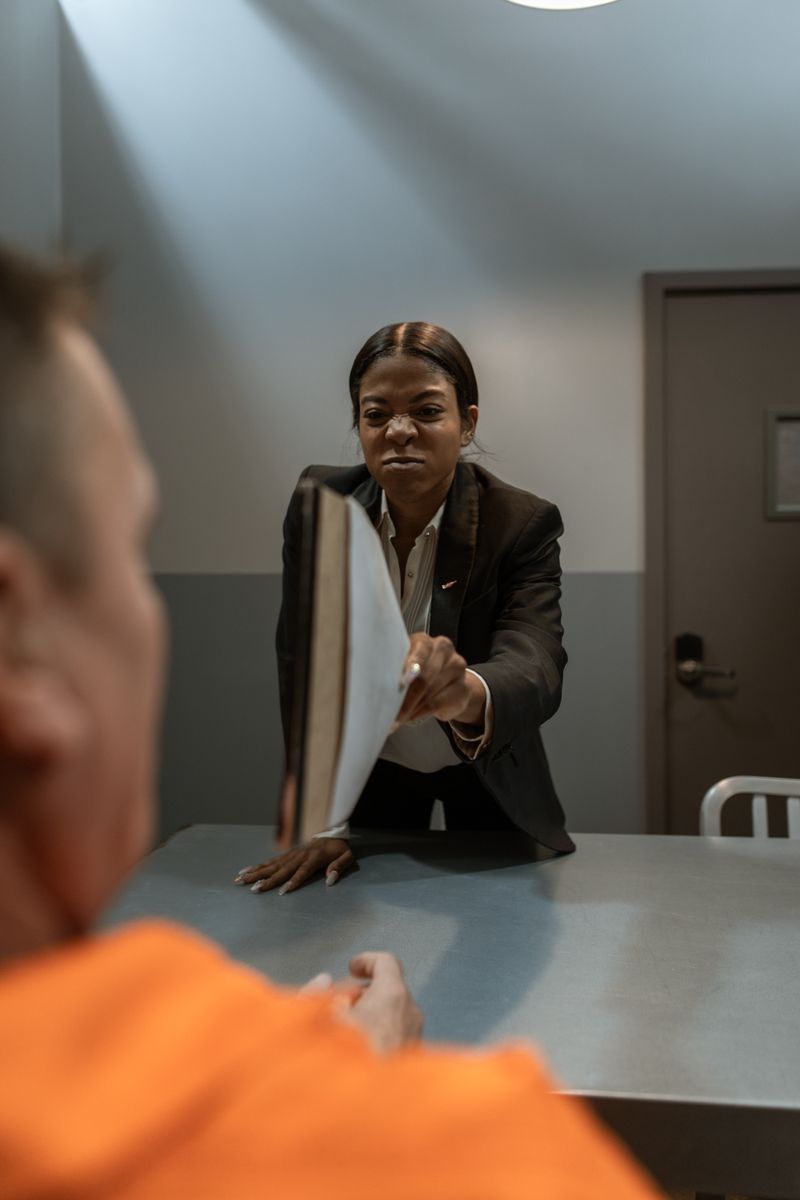### Introduction
In a tragic case that has shocked the nation, 19-year-old Mackenzie Shirilla has been sentenced to two concurrent life sentences for causing a fatal car crash that claimed the lives of her boyfriend, Domonic Russo, and his friend Davion Flanagan. The sentencing, carried out by Judge Nancy Margaret Russo, has left the families and friends of the victims grappling with heartbreak and a sense of justice served. This article aims to provide an analysis of the case, discuss the broader philosophical implications, and offer reflections on the role of the justice system in cases involving young offenders.
### Examining the Case
Mackenzie Shirilla was found guilty of murder for deliberately causing the car crash that resulted in the deaths of Domonic Russo and Davion Flanagan in July 2022. The severity of the crime is evident in the fact that Shirilla has been sentenced to two life sentences, to be served concurrently. However, it should be noted that she will be eligible for parole after serving a minimum of 15 years in prison.
During the sentencing, the prosecution argued that Shirilla showed no remorse and presented videos of her engaging in leisure activities such as attending concerts and college parties after the accident. This raised questions about her level of remorse and the gravity of her actions. Shirilla’s mother claimed that her daughter was simply trying to find a moment of joy amidst the tragedy, while Shirilla herself expressed deep sorrow and apologized for the pain she caused.
### The Role of Justice and Mercy
The sentencing of Mackenzie Shirilla raises important questions about the interplay between justice and mercy in our legal system. Judge Nancy Margaret Russo acknowledged the pain experienced by the victims’ families and the desire for a harsh punishment. However, she chose to impose a sentence that allows for the possibility of rehabilitation and reintegration into society. Russo justified her decision by stating that she believes Shirilla will not be released after serving just 15 years.
This approach by Judge Russo reflects a philosophical stance that seeks to balance retribution with the potential for redemption. While it is understandable that the families of the victims may desire harsher punishments, it is crucial to recognize that the purpose of the justice system is not solely punitive but also aims to rehabilitate offenders. By offering the possibility of parole, the system provides an avenue for individuals to demonstrate remorse, growth, and a commitment to positive change.
### The Conundrum of Young Offenders
The case of Mackenzie Shirilla also highlights the complexities surrounding young offenders within the justice system. Shirilla was only 19 years old at the time of the crime, raising questions about the impact of immaturity, impulsivity, and the potential for rehabilitation. The defense submitted letters attesting to Shirilla’s good behavior during her time in a juvenile corrections facility, emphasizing her potential for transformation. However, the prosecution argued that she demonstrated a lack of remorse, as shown by her post-accident activities.
This raises important philosophical questions regarding the responsibility and accountability of young offenders. Are their actions inherently less blameworthy due to their age and immaturity? Should the justice system offer more leniency and focus on rehabilitation rather than punitive measures for young offenders? These are complex ethical questions that require careful consideration and an understanding of the balance between accountability and the potential for change.
### Conclusion and Advice
The tragic sentencing of Mackenzie Shirilla has captivated the nation and sparked widespread debate about justice, mercy, and the treatment of young offenders. While the families of the victims may understandably desire harsher punishments, it is essential to remember that the justice system aims to balance retribution with rehabilitation.
It is crucial for society to engage in an ongoing dialogue about how to address the complexities surrounding young offenders. This includes considering the impact of immaturity, impulsivity, and the potential for growth and change. The legal system should take into account these factors in order to promote justice that is tempered with mercy and that offers opportunities for redemption and rehabilitation.
As we navigate through these difficult discussions, it is important to remember the profound loss experienced by the families and friends of Domonic Russo and Davion Flanagan. Our thoughts remain with them during this challenging time.

<< photo by BİLAL KARADAĞ >>
The image is for illustrative purposes only and does not depict the actual situation.
You might want to read !
- “In the Shadows of Tragedy: Heartrending Testimonies from Lucy Letby’s Victims’ Parents”
- “Why the Babies’ Parents Unleashed Their Heartbreaking Words to Lucy Letby During Her Sentencing”
- “Unraveling the Turbulent History of Sam Kerr’s Brother Amidst a Missed Opportunity in Australian Football”
- Killer Nurse Lucy Letby – The Dark Side of Care: A Shocking Verdict
- How will Kathleen Folbigg’s release affect public perception of criminal justice in Australia?
- “Fury Down Under: The Future of the John Wick Franchise in Australia”
- “Raging Inferno Bears Down: Mass Evacuation as Canadian Cities Yellowknife and Beyond Brace for Firestorm”
- “Justice Served: Tory Lanez Receives 10-Year Sentence for Shooting Megan”
- “Regal Rebellion: Mattel’s Groundbreaking Kate-Inspired Barbie”
- “Benjamin Mendy Acquitted of Rape Charges: The Complexity of Celebrity Trials”
- “Serial rapist Joel Russo sentenced to jail for brutal assault on woman, sparking debate over Australia’s handling of sexual offenders”
- “From Infamy to Redemption: The Story of Australia’s Most Hated Woman and Her State Pardon”
- Kathleen Folbigg’s Pardoning Sparks Debate Over Justice System and Compassion




